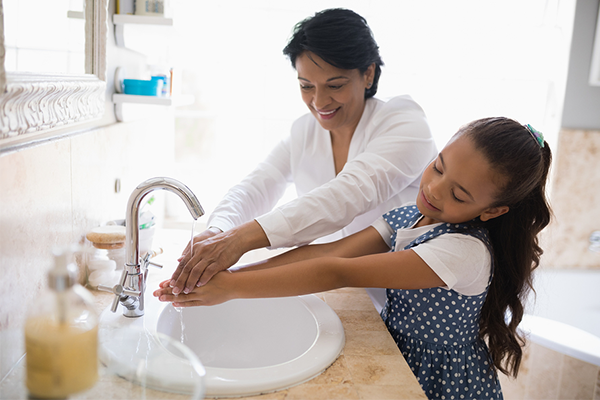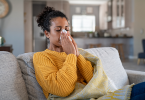When it comes to mortality, coronavirus—or COVID-19 —varies depending on an individual’s age. Below is the most recent summary from the CDC for mortality based on an individuals age.
- ≥85 years, 10% to 27%
- 65-84 years, 3% to 11%
- 55-64 years, 1% to 3%
- 20-54 years, <1%
- ≤19 years, less than 1%
Still, people like to ask, “What if…?” So:
What if I come into contact with someone who tested positive?
If you’re concerned—and especially if you have respiratory symptoms—it’s worth talking to your doctor. You may need to have some restrictions on your movement to be safe.
What if I stock up on masks to protect myself?
The CDC recommends wearing a face mask in public places such as the grocery store or a pharmacy. Face masks should be washed on a regular basis. They can be safely cleaned in a washing machine.
While We’re Talking About Prevention
The better way to prevent the spread of any virus is simple: frequent handwashing.
How frequent? A lot. The CDC says:
- Before, during, and after preparing food
- Before eating food
- Before and after caring for someone at home who is sick with vomiting or diarrhea
- Before and after treating a cut or wound
- After using the toilet
- After changing diapers or cleaning up a child who has used the toilet
- After blowing your nose, coughing, or sneezing
- After touching an animal, animal feed, or animal waste
- After handling pet food or pet treats
- After touching garbage
“This is my recommendation: Avoid shaking hands during wintertime, and if you sneeze, it’s preferable to sneeze into your elbow,” said Dr. Jose Vazquez, division chief of infectious diseases at Augusta University Health. “Also, avoid touching your face if at all possible. Most of us touch our faces more than 1,000 times a day. So, when we shake hands for example and then touch our face, our eye, our eyelid or nose, that’s how we get viruses transferred to us.”
Washing with soap and water for at least 20 seconds is great, but if a sink isn’t nearby or if you’re on the go, hand sanitizer is just as good.
Quarantines or restrictions on movement—as the CDC knows—also work. So, says Vazquez, stay away from anyone who is sick. At the same time, “if you’re sick, don’t go to work,” he said. “It’s important to do your part to help diminish the spread of viruses.”





